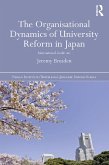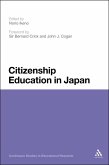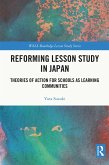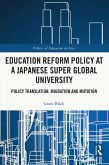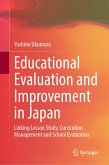The Japan Teachers' Union, which represents 500,000 elementary and lower secondary school teachers, is an important interest group in Japanese politics. It is especially significant as a radical group operating both within and outside the political system and in direct conflict with conservative government policies in education and other areas of domestic and foreign policy.
Donald R. Thurston's descriptive and analytic study of this most controversial labor union reveals a great deal about Japan's educational and political systems, and about the teaching profession in Japan and its relations with government and the community. It will therefore be of great interest both to political scientists and to those interested in comparative education.
The purpose of this broad cross-sectional case study of the Japan Teachers' Union was to find out how much influence it has had on its own members and on the formulation and implementation of educational policies. The conclusion is that the union is much more influential at the local level where educational policies are implemented, and changed in the process of implementation, than at the national level where policy is formulated. It also shows that the Japan Teachers' Union has changed teachers' attitudes towards their roles, and that although the JTU is attached to the left-wing Japan Socialist Party, it is much more autonomous than has been thought.
Originally published in 1973.
The Princeton Legacy Library uses the latest print-on-demand technology to again make available previously out-of-print books from the distinguished backlist of Princeton University Press. These editions preserve the original texts of these important books while presenting them in durable paperback and hardcover editions. The goal of the Princeton Legacy Library is to vastly increase access to the rich scholarly heritage found in the thousands of books published by Princeton University Press since its founding in 1905.
Donald R. Thurston's descriptive and analytic study of this most controversial labor union reveals a great deal about Japan's educational and political systems, and about the teaching profession in Japan and its relations with government and the community. It will therefore be of great interest both to political scientists and to those interested in comparative education.
The purpose of this broad cross-sectional case study of the Japan Teachers' Union was to find out how much influence it has had on its own members and on the formulation and implementation of educational policies. The conclusion is that the union is much more influential at the local level where educational policies are implemented, and changed in the process of implementation, than at the national level where policy is formulated. It also shows that the Japan Teachers' Union has changed teachers' attitudes towards their roles, and that although the JTU is attached to the left-wing Japan Socialist Party, it is much more autonomous than has been thought.
Originally published in 1973.
The Princeton Legacy Library uses the latest print-on-demand technology to again make available previously out-of-print books from the distinguished backlist of Princeton University Press. These editions preserve the original texts of these important books while presenting them in durable paperback and hardcover editions. The goal of the Princeton Legacy Library is to vastly increase access to the rich scholarly heritage found in the thousands of books published by Princeton University Press since its founding in 1905.



